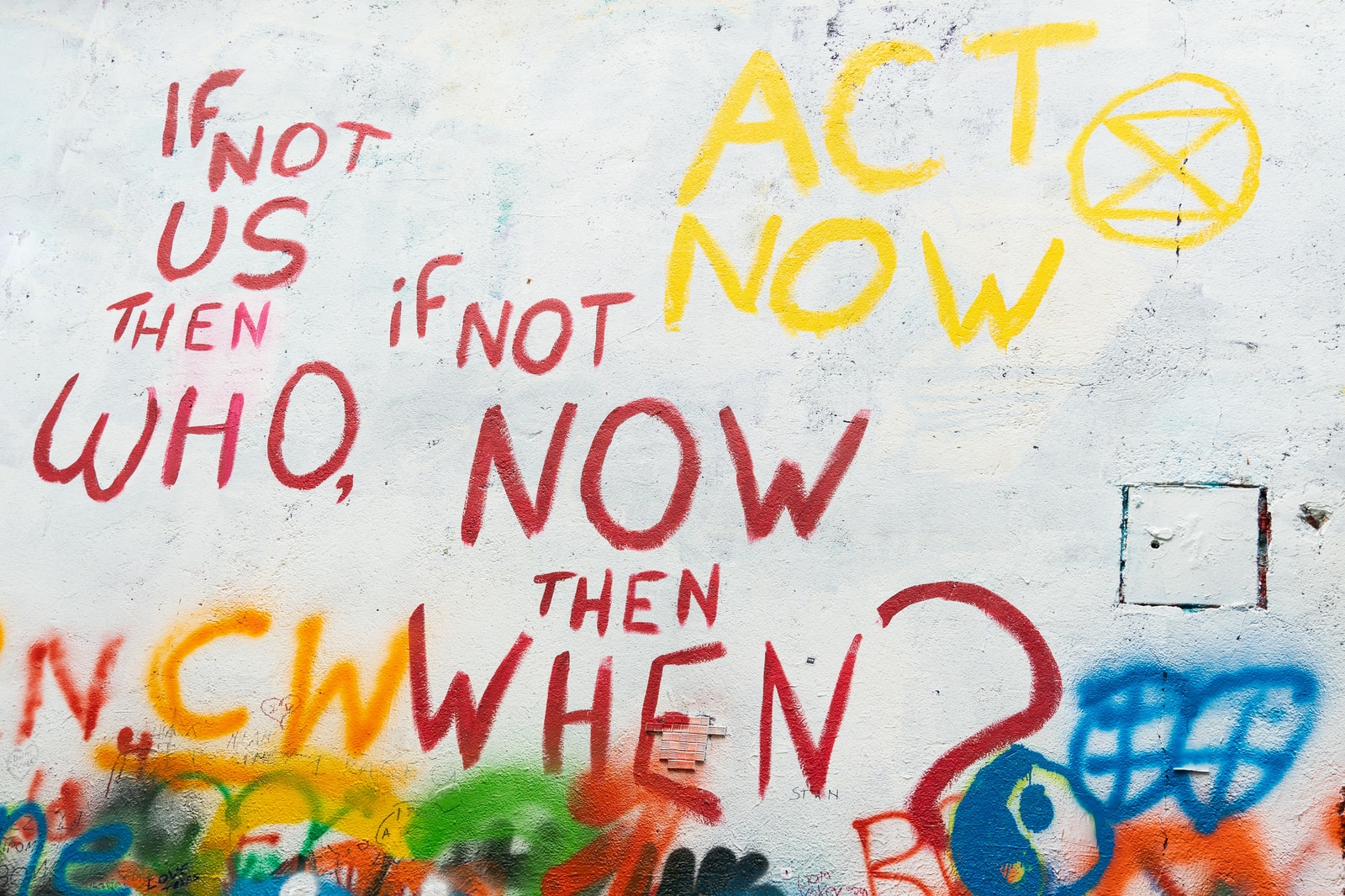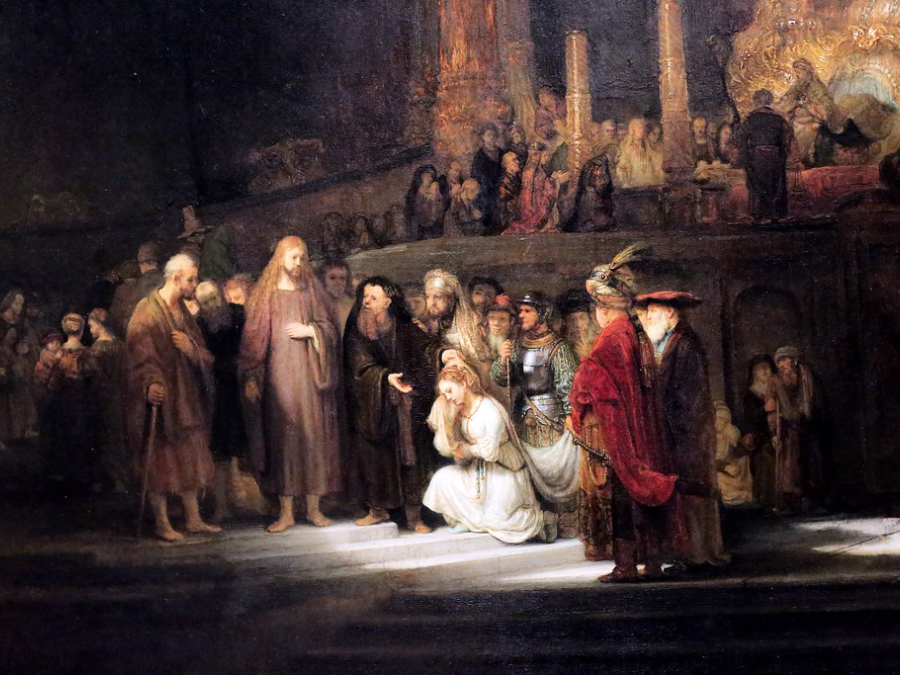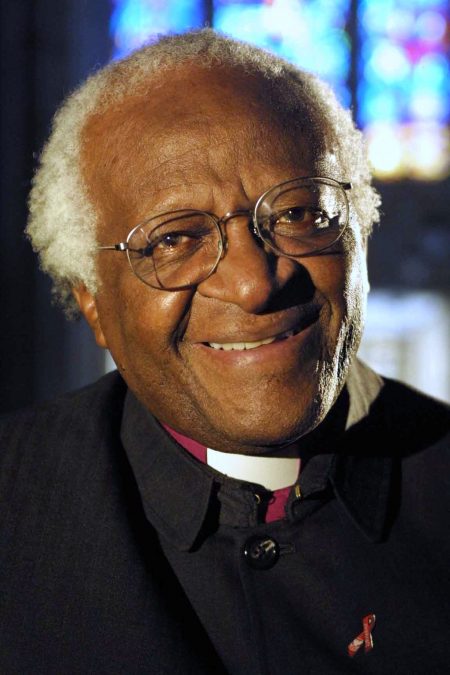
Phil Groves: LLF, the Anglican Communion and Institutional racism
February 8, 2022
Girard, Jesus and the defence of the scapegoat
February 11, 2022We are incredibly grateful to the Very Revd Prof Martyn Percy for this series of reflections, which will be added to in the lead up to Lent.
One: Finding Our Pulse and Heart
Two: Finding Our Substance and Spine
Three: Finding Our Courage and Conviction
Four: Finding Our Wisdom and Discernment
Finale: At the End of the Rainbow – Finding Our Home
Two: Finding Our Substance and Spine
Bible Passages and Questions: The Story of Zacchaeus (Luke 19: 1-10)
- Jesus is a persistent boundary-crosser. What risks does he take with the crowd to associate with and befriend someone like Zacchaeus – resented, and with a reputation that made him widely detested and mistrusted?
- What are the modern equivalents today in our society? Where do you, and where does your church stand with individuals and groups that are despised and rejected?
- When we think of a church that has substance and spine, can we imagine at the same time, this church siding with the marginalised, despised and rejected, such that it loses popularity, and only gains disdain?
Desmond Tutu:
- Forgiving and being reconciled to our enemies or our loved ones are not about pretending that things are other than they are. It is not about patting one another on the back and turning a blind eye to the wrong.
- True reconciliation exposes the awfulness, the abuse, the hurt, the truth. It could even sometimes make things worse. It is a risky undertaking but in the end it is worthwhile, because in the end only an honest confrontation with reality can bring real healing. Superficial reconciliation can bring only superficial healing.
- If you are neutral in situations of injustice, you have chosen the side of the oppressor. If an elephant has its foot on the tail of a mouse, and you say that you are neutral, the mouse will not appreciate your neutrality.
- There comes a point where we need to stop just pulling people out of the river. We need to go upstream and find out why they’re falling in.
- Language is very powerful. Language does not just describe reality. Language creates the reality it describes.
Discussing the quotations above, how do we become more alert to the language that shapes our perceptions and sense of reality, luring us into superficial judgments of others? What more can the church do to speak truth to power?
Reflection: Seeing Zacchaeus
I ought to begin by saying that at a little over five foot seven (on a good day, tip-toe), I identify with Zacchaeus. Too small to see the main event, he climbs to get a better view. He may be small, but he’s smart. He’s my kind of man. Yet the story that Luke tells is not really about the height of a tax-collector. So let me say more, if I may.
Luke chapter 19 is full of crowds and numbers – first a crowd in Jericho where Jesus meets Zacchaeus. Then a parable about the ten Minas (or Talents) – a story of honest fiscal stewardship, and of kingly power. Then of the crowds at the next port of call, which marks the triumphal entry of Jesus into Jerusalem. Before finally ending up in the temple, where the issue is once again money. Throughout the chapter, Jesus is feted and celebrated by the crowds, who cut down palms from the trees, and lay their clothes across the road as he rides through on his donkey. The gospels record the event, telling us that the crowds lining the street to see the famous Galilean prophet and healer, cried ‘Hosanna in highest! Blessed is he who comes in the name of the Lord’. The event must have made quite an impact, and would not have gone unnoticed by the authorities. And yet crowds can be fickle, can they not? The same people who cry “Blessed is the King” on Palm Sunday need only a few days to change their verdict to crying “crucify him!”
The narrative involving Zacchaeus is therefore at the centre of this chapter. It is only here that the crowds and the money come together. And how Luke loves to tell his story. Zacchaeus is small man. Small people, on the whole, get pushed to the front of the crowd. So that they can see what is going on. But Zacchaeus, though small, is shunted to the back. He is not supposed to see Jesus – that is the point. Crowds can be cruel. But to overcome this, Zacchaeus is forced to climb – which is why we find him in the sycamore tree. The function and behaviour of the crowd is therefore an important key to understanding this story.
There is another dimension to the crowds that Jesus knew, however, that ought to catch our attention as well. In the midst of great throngs, who were often pressing hard on him, and presumably jostling him too, Jesus was always strangely alert to other things. But alert to what, exactly? We already know that Jesus healed nobodies, the gospels in most cases not even bothering to name the afflicted individuals. We know that the people Jesus reached out to were excluded from the mainstream of society and the mainstream of faith.
The people Jesus healed were mostly outsiders, whose stories were “unpublished”, which is the literal meaning of the word “anecdote”. It is the small, unpublished stories that Jesus constantly turns to. The small man who cannot see, he sees; the small voice in the crowd, he hears; the untouched body in the pressing throng, he feels. The incarnate body is richly sensate to the “unpublished”. The gospel tells us that Zacchaeus was rich, but that he could not see Jesus on account of “his small stature”. So, he climbs a tree for a better look. Yet it is from that position that Jesus calls to him (there must have been dozens of people who had climbed trees or buildings to get a better look). Jesus invites himself to Zacchaeus’ house, and a new story unfolds. One of dangerous, prophetic inclusiveness.
In Christian memory and tradition, Zacchaeus is consistently portrayed as either fraudulent, or as a collaborator with the occupying Roman army. In fact, I cannot recall reading a bible commentary or hearing a sermon when this was not explicitly re-stated. The reaction of the crowd bears this out. They all “murmured2 that “he [Jesus] has gone to be the guest of a sinner”. Zacchaeus, meanwhile, has decided that his response to Jesus’ visit is to “give the half of my goods to the poor”.
And then comes the hidden sting in the story, for Zacchaeus adds “if I have defrauded anyone of anything, I will restore it fourfold”. “If”. That “if” must be one of the most important two letter words in the gospels. That Zacchaeus is despised by the crowd is not in doubt. But nowhere does the gospel say he is dishonest. Zacchaeus is simply hated for what he does and what he represents; but in truth, he almost certainly does this with great honesty and integrity.
So what does Jesus’ action signify? Only this. That in the midst of a crowd bestowing their adulation, Jesus refuses to side with their base prejudices. Zacchaeus is affirmed for who he is. He does not repent, contrary to how this story is read – he has no need to. Rather, a person who is despised is allowed to flourish, and is now seen as a figure of generosity – he has, after all, given away half of what he has.
Consistently, Jesus sides with the ostracised, the despised, the unclean, and the (alleged) sinner. He refuses to allow Zacchaeus to be caricatured. He sides with someone unpopular, but whom one suspects had never been understood – and perhaps never been allowed a fair hearing. So Jesus is no crowd-pleaser; he is, rather, their confounder. Even before the palms are ripped from the trees, and the cries of “Blessed!” heard, it is obvious that Jesus is a disturber of crowds. He does not want their praise. He wants their moral commitment – and calls them to be good. And they make him pay for this – his failure to deliver what they promised themselves.
The power of the gesture that Jesus performs in this story should never be underestimated. And let me, if I may, illustrate this with reference to two contemporary stories. The first is a popular story from World War Two, which tells of a Romanian Christian who found himself imprisoned at Belsen, and deprived of all he needed to sustain his faith: no crucifix, bible, icons, devotional books, corporate worship or knotted prayer beads. So he prayed in secret – that he might respond to the call of love. He found himself spending time in the camp with the sick, the starving, the diseased, the dying and worst of all, with the betrayers – all those who were shunned by others.
One day, as the camp drew close to liberation, an atheist – a priest, in fact, who had his faith shattered by the experience of war – came to see the Romanian and said, “I see how you live here. Tell me about the God you worship”. And the Romanian replied: “He is like me”. I wonder which of us could reply: “he is like me”? You see, in wisdom it is often the example that makes the difference, not the ideas; the practice, not the theories. That’s why we are judged not by what we own or might have achieved, but by the fruit and moral character of our lives.
The second comes from South Africa, and from the dark days of Apartheid. Father Trevor Huddleston, an Anglican priest, and member of the Community of the Resurrection, was for a while Vicar of Sophiatown – a rundown area of Johannesburg, but one of the few suburbs where black and coloured people could buy property. To appreciate this story, you need to picture Huddleston in your mind – a very tall, white Englishman, with a chiselled face and a rather gaunt expression. He was seldom seen without a cassock (which often appeared to be too short); and as an Anglo-Catholic, would also have sported a biretta.
Morning and evening prayer are said daily, so Huddleston would have made the short walk from his community house up the hot dusty road to the church, passing dozens of people on the way going about their business. Being a polite Englishman, he always raised his biretta to passers-by. And as someone who made no distinction between black, white or coloured, raised his biretta to every adult he met. His walk always took him past one particularly squalid house, where a black washer-woman laundered clothes each day – to make a living – in her tiny, cramped back yard. Huddleston would greet her and raise his biretta, whilst a young eleven-year boy played in the yard.
The boy puzzled over this gesture as the months went by. Who was this white Englishman who raised his hat to a poor black woman? What kind of white man would show such courtesy and kindness? It is a simple gesture, and one that Huddleston, I expect, gave no thought to. But the boy did. It awakened his curiosity. It sparked a thought: that all men might be equal, and that not all white men thought themselves superior. That his mother could be respected as any white woman might be. And that this priest was, in his tiny gesture, showing a new way. The name of that boy in the back yard at Sophiatown was, as it turns out, known to us all: the boy was called Desmond. Desmond Tutu.
So we now might understand something of the power of Jesus’ gesture. Through hospitality and communion, barriers are broken down. The demonised turn out to be not so terrible after all. Indeed, they get preferential treatment from Jesus. They become his friends. The black woman and her son; the betrayers and diseased in the camp; and the tax-collector in an occupied country – Jesus is with them all. It is more than mere gesture; it is radical, inclusive communion.
Christians, it is often said, only regard themselves as honorary sinners: the rest of the world are the real ones. But the gospels faithfully preach against this nonsense. It is the self-righteous who have to re-think, and who Jesus’ sermons and parables are really directed at. Which is why Zacchaeus having tea with Jesus is such a profound moment in the gospels. The ultimate crowd-pleaser deciding to have a meal with the man the crowds love to hate. This is where we find Jesus today. Not with those we so easily love; but with those who we often so easily hate and lazily despise. It is as though Jesus says to each of us, “see – he is not so bad after all. Behind the role and the job he does that you detest, behold, is a generous and forgiven human being. I am going to eat with him, and get to know him better”. He hardly needs to add: “Go. Do likewise”.





3 Comments
[…] Finding Our Pulse and Heart Two: Finding Our Substance and Spine Three: Finding Our Courage and Conviction Four: Finding Our Wisdom and Discernment Finale: At […]
[…] Our Pulse and Heart Two: Finding Our Substance and Spine Three: Finding Our Courage and Conviction Four: Finding Our Wisdom and Discernment Finale: At […]
[…] Our Pulse and Heart Two: Finding Our Substance and Spine Three: Finding Our Courage and Conviction Four: Finding Our Wisdom and Discernment Finale: At […]